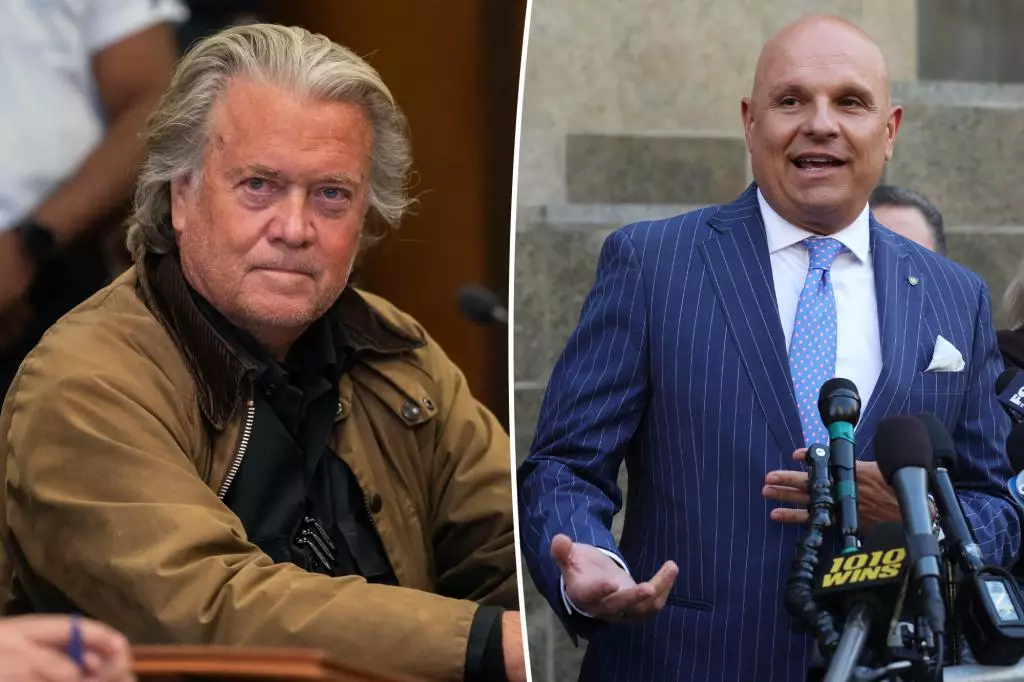Steve Bannon, a prominent figure in American politics and an ally of former President Donald Trump, finds himself embroiled in a complicated legal battle regarding fundraising irregularities tied to his non-profit initiative, We Build The Wall. The Manhattan District Attorney, Alvin Bragg, has pressed charges against Bannon, accusing him of defrauding donors through deceptive practices while soliciting funds for the construction of a border wall between the U.S. and Mexico. With serious allegations including money laundering, conspiracy, and fraud, Bannon stands to face a significant prison sentence of 5 to 15 years should he be convicted.
The underlying sentiment surrounding the case is intensified political scrutiny; Bannon himself has characterized the charges as an attack motivated by his political affiliations and views. This narrative of being a target of lawfare—a legal strategy used to undermine political opponents—resonates with his supporters and amplifies the contentious atmosphere surrounding the case.
A Controversial Legal Team
In a notable move signaling the seriousness of his predicament, Bannon has retained Arthur Aidala, a high-profile attorney known for handling high-stakes cases involving notorious figures such as Harvey Weinstein and Ghislaine Maxwell. Aidala’s involvement suggests Bannon’s commitment to mounting a robust defense in what he claims is an unjust pursuit by the state. Aidala’s statement to the media reflects an assurance in clearing Bannon’s name and a readiness to challenge what they deem a politically charged prosecution.
The choice of legal representation elicits intrigue, not only due to Aidala’s past associations but also because it underscores Bannon’s strategy of portraying himself as a victim of a politically motivated agenda, thereby rallying support from his base.
The Broader Implications
The allegations against Bannon are part of a larger tapestry of issues revealing the complexities of fundraising in political movements. We Build The Wall attracted significant donations, yet the case highlights the precarious balance between political advocacy, financial accountability, and the ethics of fundraising. With two co-defendants already imprisoned for their roles in the fundraising scheme, the potential repercussions extend beyond Bannon himself, raising questions about the accountability of similar organizations that straddle the line between activism and financial exploitation.
Moreover, the implications of this case extend to Bannon’s political future. A conviction could not only lead to incarceration but could also jeopardize his position as a media commentator within conservative circles, drastically altering his influence and standing in American politics.
Steve Bannon’s impending trial encapsulates the essence of contemporary political battles in America. As much about individual accountability as it is a reflection of broader societal divisions, the case stands as a litmus test for America’s relationship with political figures and their financial practices. Whether Bannon can successfully navigate this legal maze remains to be seen, but it undoubtedly signals a moment of critical reflection for political fundraising and the integrity of non-profit activism. How this conflict resolves may set significant precedents for future cases, and the outcome will likely resonate throughout the political landscape for years to come.
